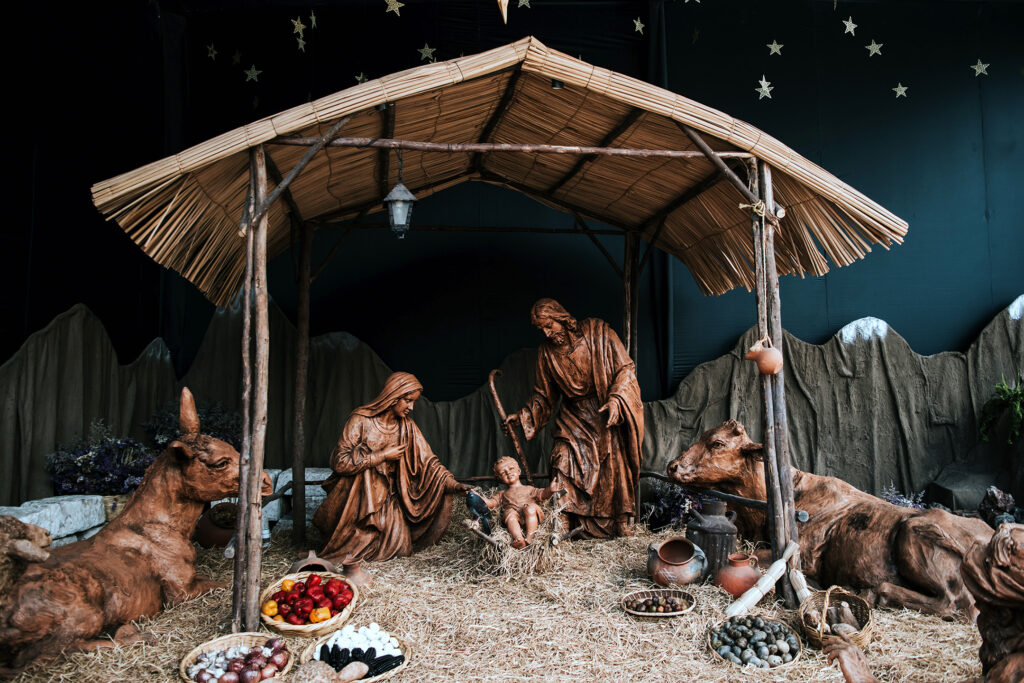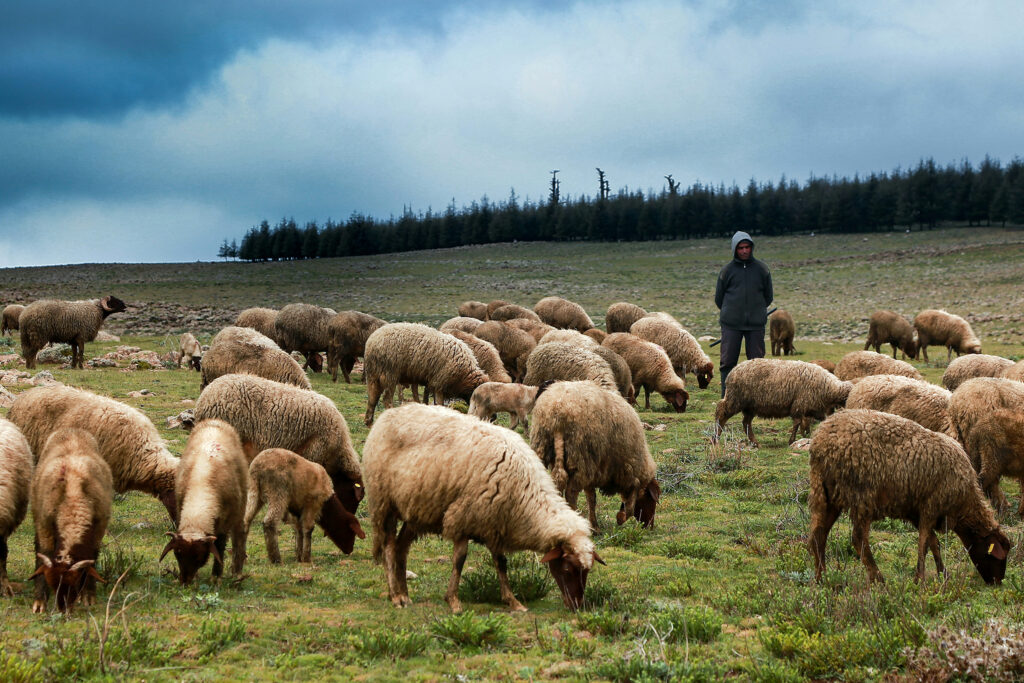“And she gave birth to her firstborn son and wrapped him in swaddling cloths and laid him in a manger, because there was no place for them in the inn.” (Luke 2:7 ESV)
At the end of a five-day road trip from South Texas, where we had just graduated from language school as new missionaries, to our home near Seattle, we pulled off the interstate so I could accompany my daughter to the restroom while my husband filled the gas tank.
As we hurried back to the car, I saw my husband rush to unbuckle our son from his car seat while fuel pooled under his feet. We stared, frozen as much by the winter weather as by the shock of the situation, while the last drops of gas emptied to the ground. Due to the weight of our trailer, the engine had been touching the gas tank for much of our trip, melting a hole in it, and that was the end of our trusty, rusty Toyota Highlander.
While we waited for the tow truck to come for the car and my husband’s parents to come for us, we made ourselves at home in the minimart, making small talk with the young clerk and buying a couple snacks. I sat cross-legged on the grimy floor and plugged my phone into an outlet underneath a refrigerator chest. The young man working there showed my daughter everything he could about how to run a minimart, including the button under the counter he can push in case of emergency.
For months afterwards, she considered working at a gas station store (and having the chance to push that button) her dream job. Heavy in my memory is the fear I felt as I watched fuel spread under my husband and son, and the disappointment of losing our transportation during a cross-country move. But the gas station clerk was a hospitable hero who, in his small way, eased the burden we felt that night.
In art, literature, Christmas pageants, and many of our pastors’ sermons, “the innkeeper” has a certain reputation in the nativity story. Some imagine the story like this: Joseph and Mary, desperate for a hotel room, go door to door looking for a place to stay in Bethlehem, but everyone turns them away, disgusted by their poverty. Finally, one innkeeper reluctantly ushers them around back to a space in his barn, where Mary ultimately delivers Jesus. We are indignant, wondering how the innkeeper would feel knowing that he didn’t make space for a poor couple to have their baby in the comfort of his roadside inn so that the Savior of the world could have his first nap on a real bed instead of a feeding trough.
For North Americans, words like stable, barn, manger, inn, guest house, room (and “no room”) conjure up midwestern farm scenes and motels with bad customer service and “no vacancy” signs. But this vilified innkeeper is a rendering of our imaginations. The owner of the lodging place isn’t even mentioned in the story of Jesus’ birth. In fact, Luke is the only gospel writer to mention the manger at all.
There’s actually a lot we don’t know about this precious moment in history, including the precise date. Most of the details are based on tradition and speculation. In my host country of Spain—where elaborate nativities are set up to decorate for Christmas—most people believe that Jesus was born in a cave. Some Bible scholars think that the “inn” or “guest house” in Luke 2:7 alluded to a series of naturally protected caves where travelers could stop for the night. Similarly, other commentators have suggested that Luke referred to a khan, an enclosed community space surrounded by recesses with raised floors where people slept. If these communal sleeping platforms were crowded, the traveler must be content with a public corner of the courtyard among the cattle, or in the stable.
Some interpreters speculate that Jesus was born during the Feast of Tabernacles, and so, when there were no beds available in the house, the host offered his sukkah, or booth, which would have been set up outside.
The most likely interpretation is that the location lacking space refers to a guest room attached to a family home. The Greek word used in this passage, kataluma, also appears in Mark 14:14 and Luke 22:11, where it is commonly translated “upper room” or “guest room.” Excavations of first-century dwellings and historical references reveal that some homes had an additional room located beside the main dwelling space or on an upper level. Guests could stay in this private room while the family slept in the larger, open main level. On cold nights or for safety, the family could bring their animals into a designated space in a portion of the main level near the door, or into another semi-enclosed room on a lower level.
According to this view, Joseph and Mary would have arrived at the home of a relative in Bethlehem, who welcomed them hospitably. With the guest room already full of extended family visiting for the census, when Mary’s labor began, she would have been moved to the lower portion of the house kept for animals in order to have the space and privacy needed to give birth.
When examining the interpretations of the word kataluma, it is worth noting that there is a specific Greek word used to describe an inn with an innkeeper, pandocheion, which is not used in this passage. That’s the word used to describe the place that the Good Samaritan took the wounded traveler in Luke 10.
So, it’s possible there was no innkeeper on the night of Jesus’ birth. And if they stayed in a family home, it’s highly unlikely that the host served them reluctantly, given the cultural importance of hospitality in the Middle East (for example, in Luke 11:5-8, not having bread for guests constitutes an emergency). What’s most likely is that our weary travelers made do with the best they could find, with a little help from those around them, and a little ingenuity.
Most missionaries are intimately familiar with harrowing travel experiences, whether we recount missed flights and nights spent in airports, broken down cars, or emergency evacuations. Citizenship and visa requirements sometimes mean frequent treks into neighboring countries or even back to our passport countries. We’ve made our way from one part of the world to another with sturdy suitcases, babywearing gear, and a lot of waiting in lines with grumpy children.
As it did for Mary and Joseph, all this traveling sometimes requires the help of family, friends, or even a stranger, as well as some old-fashioned mother wit. A casual survey of expat moms found dresser drawers, closet shelves, bathtubs, and airport floors to be common beds for babies, while clean dog beds, the bath mat, and lots of hotel blankets have created a soft place for babies to sleep. These expat moms have constructed blanket forts, used shower curtains as room darkeners, and enclosed the bottom bunk to provide some separation. Is any of this really that different from Mary, who simply laid her baby in a nearby manger after a long trip (not to mention the labor)? Perhaps she gave birth in a house overflowing with people, or perhaps a hospitable innkeeper ushered them to the stable to have some privacy from the community lodgings he managed, and Mary figured it all out on her own.
That night at a Tacoma gas station is an important part of our family’s story of how God provided for us. And the same is certainly true of Mary and Joseph’s night in a Bethlehem stable. How has God provided for you in your journeys in life and mission? And, in your comings and goings, consider: has the Lord found room in your home and heart?
Prayer Requests:
- Pray that Spanish churches will honor God with their Christmas worship services and outreach events.
- Pray for more laborers for the harvest in Spain, and for more teachers and staff for Evangelical Christian Academy in Madrid.
- Pray for our church plants to remain faithful to Christ and to glorify God.
- Pray for the missionaries in Spain to find our rest and joy in Christ.
Editor’s Note: This is the second article in our 2023 Advent devotional series. Join us each week as we meditate on Christ’s birth and God’s glorious plan for our salvation.





